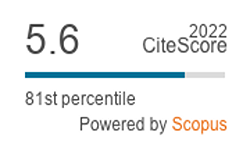A review on the potential of Bruton’s tyrosine kinase (Btk) inhibitor – Ibrutinib for treatment of Multiple Myeloma (MM)
DOI:
https://doi.org/10.36877/pmmb.a0000028Abstract
Multiple myeloma (MM) is characterized by the over-production of monoclonal plasma cells that eventually become malignant in the bone marrow. MM remains as an incurable cancer, but it can be treated through chemotherapy. Nonetheless, research on novel therapies for effective treatment of MM is ongoing and in this case the involvement of Bruton’s tyrosine kinase (Btk) in B-cell malignancies has made it one of the new therapeutic targets. In MM patients, it has been reported that the expression of Btk was elevated and this could potentially contribute to chemoresistance indirectly via enhancement of cell proliferation and survival. Ibrutinib is a highly selective irreversible Btk inhibitor commonly used as treatment for B-cell malignancies such as Mantle Cell Lymphoma (MCL) and Chronic Lymphocytic Leukemia (CLL). With reference to the potential involvement of Btk in MM and current treatment of MCL and CLL using ibrutinib, researchers have begun to examine the effect of ibrutinib treatment on MM. This review provides information on the association of MM and Btk in conjunction with the treatment using ibrutinib. To date, clinical trials of ibrutinib as therapeutic alternative for MM have produced promising results, particularly as combination therapy with other agents such as dexamethasone and carfilzomib. However, there is limited evidence on the Btk mechanisms involved in MM, hence, it is important to further investigate the Btk oncogenic signalling pathway(s) in MM cells in order to establish successful and improved treatment of MM.
Downloads
Published
Issue
Section
License
Author(s) shall retain the copyright of their work and grant the Journal/Publisher right for the first publication with the work simultaneously licensed under:
Creative Commons Attribution-NonCommercial 4.0 International (CC BY-NC 4.0). This license allows for the copying, distribution and transmission of the work, provided the correct attribution of the original creator is stated. Adaptation and remixing are also permitted.

This broad license intends to facilitate free access to, as well as the unrestricted reuse of, original works of all types for non-commercial purposes.
The author(s) permits HH Publisher to publish this article that has not been submitted elsewhere.



.png)

.jpg)
